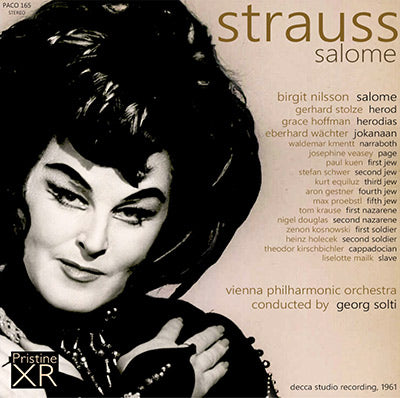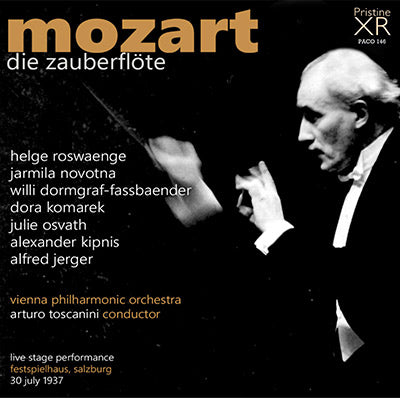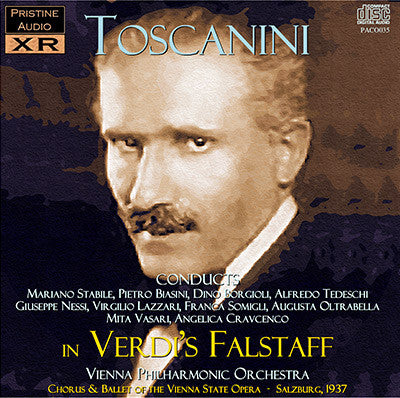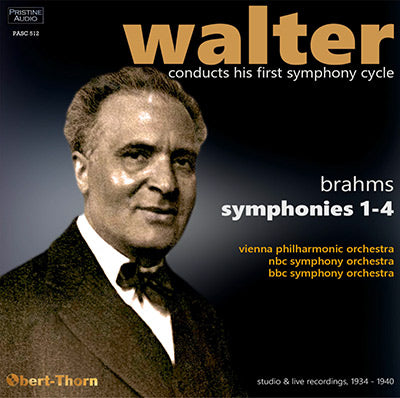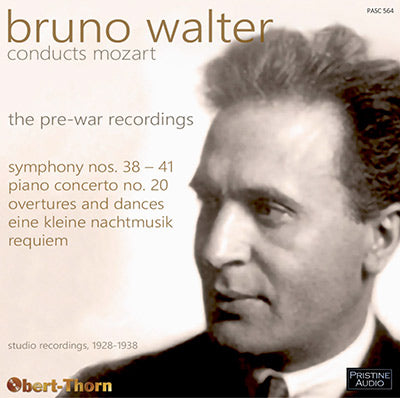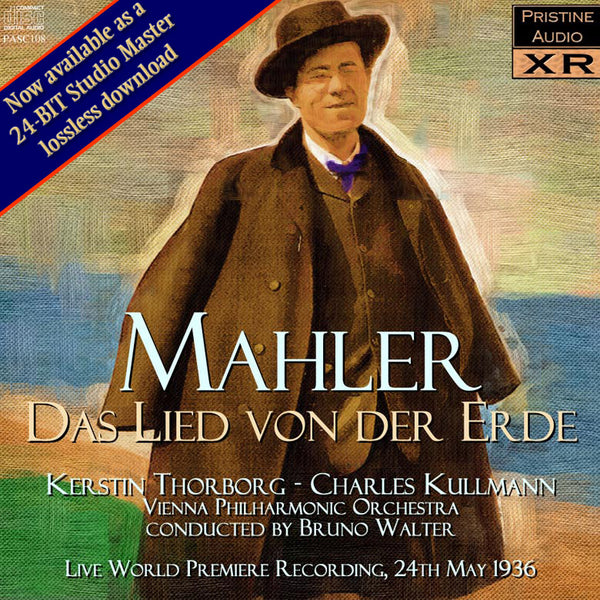Vienna Philharmonic Orchestra
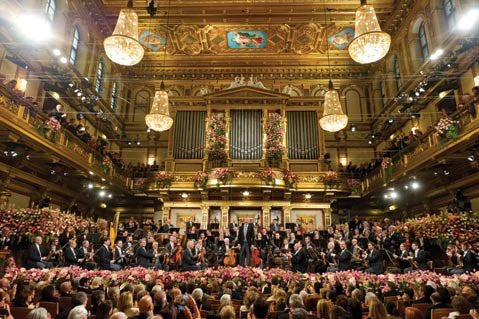
The Vienna Philharmonic (VPO; German: Wiener Philharmoniker), founded in 1842, is an orchestra regularly considered one of the finest in the world.
The Vienna Philharmonic is based at the Musikverein in Vienna, Austria. Its members are selected from the orchestra of the Vienna State Opera. Selection involves a lengthy process, with each musician having to demonstrate his or her capability for a minimum of three years' performing for the opera and ballet. After this probationary period, the musician may request from the Vienna Philharmonic's board an application for a position in the orchestra.
The Vienna Philharmonic was already observed to have a characteristic sound by the turn of the last century. David Hurwitz notes that Bruno Walter told an interviewer on Austrian Radio in 1960 that hearing the Vienna Philharmonic for the first time in 1897 was for Walter (in Hurwitz's translation): "...a life-altering impression, because it was this sound of the orchestra that I have experienced ever since – I have the feeling: this is the way an orchestra should sound; the way it should play. I had never heard the beauty, this calmness of the sound, that sort of glissando, the manner of vibrato, the string sound, the blend of woodwinds with the strings, with the brass, the balance of the brass in combination with the percussion contributing together to the overall sonority of the orchestra. For me, this impression was definitive, and now I would like to anticipate a point and tell you this: this sound, 1897, is the same today.".
The VPO's sound has been attributed in part to the VPO's instruments and in part to its playing styles.
Hurwitz notes that the 1960 Walter interview indicates that the strings' vibrato (as of 1960) was audibly like that of 1897, and also quotes music critic Richard Specht in 1919 writing of "something inimitable in the vibrato and the passionate virtuosity of the violins" of the Vienna Philharmonic.
As for other instruments, using early recordings, the musicologist Robert Philip has documented some changes in how VPO players used vibrato during the mid-20th century, although he also notes differences between the VPO and other orchestras of the era. As was typical of the era, the pre-1945 flutes show "very little vibrato" in recordings "until after World War II... even in the long solo in Mahler's Das Lied von der Erde the flautist [under Bruno Walter in 1936]... plays almost without vibrato" except on "a few long notes [with] a delicate medium-speed vibrato"; but "by the late 1940s the flautists... had adopted a gentle medium-speed vibrato". The oboes before the 1940s show "little or no vibrato," but by the late 1940s "the principal oboist had adopted a very delicate fast vibrato ... but he uses it very sparingly." (The cor anglais is, he notes, even in the late 1940s still played "without any vibrato"). The bassoonists "show virtually no bassoon vibrato up to the 1950s".
The Vienna Philharmonic website states that today, with the flute, "as in all wind and brass instruments in the Viennese classics, vibrato is used very sparingly."
Philips notes that by 1931 the Vienna Philharmonic strings were reported to use uniform bowing, which was still unusual in Britain.[60] As for portamento – sliding audibly from one note to another, a prominent effect among pre-war string players – the VPO strings' sliding in the early 1930s "sounds more deliberately expressive, and less a matter of routine, than that of British orchestras. This is partly because of the firmer dynamic shaping of the melodic line, partly because of the warmer and fuller string tone."[61] Further, he hears "strong evidence of a free approach to portamento" – that is, of "different players shifting at different points" within the same phrase (which, he shows, was standard internationally in pre-war orchestral playing). He notices a reduced use of portamento in recordings from 1931 to 1936, but in 1936 also notes that the VPO strings still make "conspicuous" use of portamento in Mozart, where British orchestras by this time were using less of it in Classical-era composers. Finally, he hears a "trend towards greater subtlety in the use of portamento" post-war, with "only discreet portamento" in a recording under Herbert von Karajan in 1949.

Vienna Philharmonic Orchestra
The Vienna Philharmonic (VPO; German: Wiener Philharmoniker), founded in 1842, is an orchestra regularly considered one of the finest in the world.
The Vienna Philharmonic is based at the Musikverein in Vienna, Austria. Its members are selected from the orchestra of the Vienna State Opera. Selection involves a lengthy process, with each musician having to demonstrate his or her capability for a minimum of three years' performing for ...
R. STRAUSS Salome
R. STRAUSS Elektra (excerpts)*
Studio recordings, 1961 (stereo) & *1952 (Ambient Stereo)
Total duration: 2hr 25:30
Birgit Nilsson – Salome
Gerhard Stolze – Herod
Grace Hoffman – Herodias
Eberhard Wächter – Jokanaan
*Christel Goltz - Elektra
*Elisabeth Höngen - Klytemnestra
*Ferdinand Frantz - Orest
Vienna Philharmonic Orchestra
*Bayerisches Staatsorchester
conducted by Georg Solti
MOZART Die Zauberflöte
Live recording, 1937
Total duration: 2hr 35:21
Tamino : Helge Roswaenge
Pamina : Jarmila Novotna
Papageno : Willi Domgraf-Fassbänder
Papagena : Dora Komarek
Vienna Philharmonic Orchestra
conducted by Arturo Toscanini
Salzburg Festival, 9th August 1937
Total duration: 122:25
Vienna Philharmonic Orchestra
Vienna State Opera Ballet & Chorus
conducted by Arturo Toscanini
BRAHMS Symphonies 1-4
BRAHMS Academic Festival Overture (bonus download)
Recorded 1934-1940
Total duration: 2hr 30:15 (CD) or 2hr 39: 15 (download)
Vienna Philharmonic Orchestra
NBC Symphony Orchestra
BBC Symphony Orchestra
conducted by Bruno Walter
MOZART Symphony Nos. 38 – 41
MOZART Piano Concerto No. 20
MOZART Eine Kleine Nachtmusik
MOZART Requiem
MOZART Overtures and Dances
Studio Recordings, 1928 – 1938
Total Duration: 3hr 43:44
Elisabeth Schumann, soprano
Enid Szánthó, contralto
Anton Dermota, tenor
Alexander Kipnis, bass
Vienna Philharmonic Orchestra et al
conducted by Bruno Walter
MAHLER Das Lied von der Erde
Recorded 1936
Total duration: 57:40

